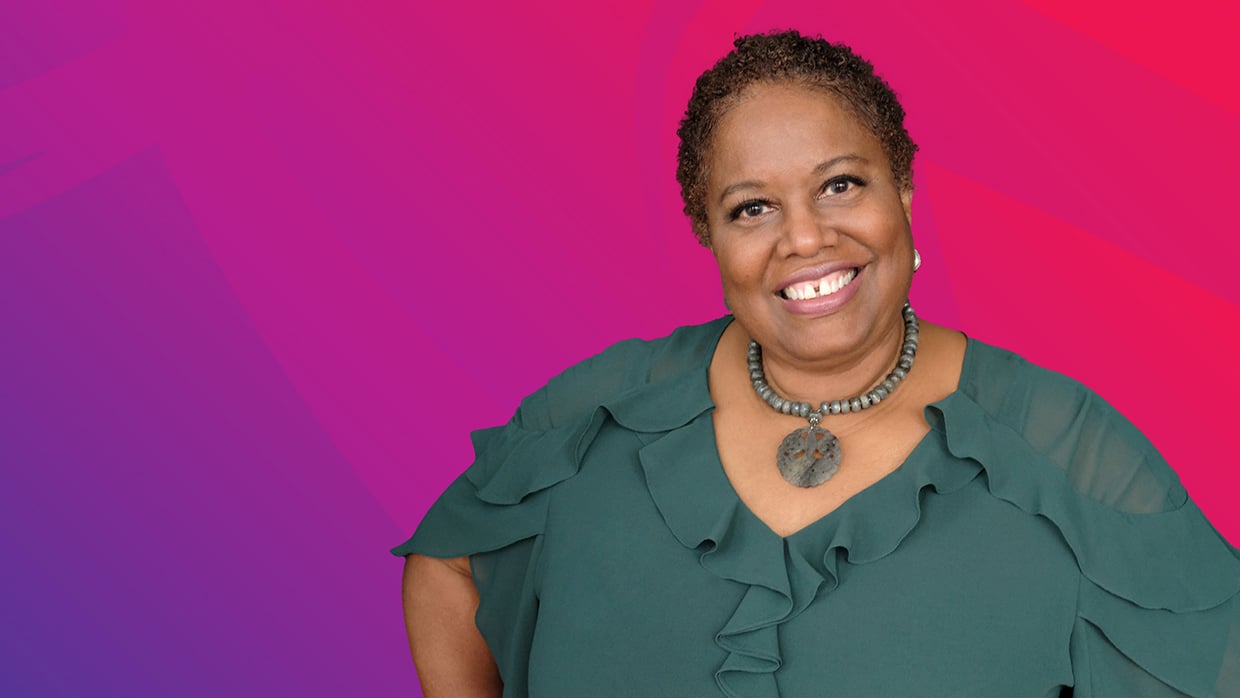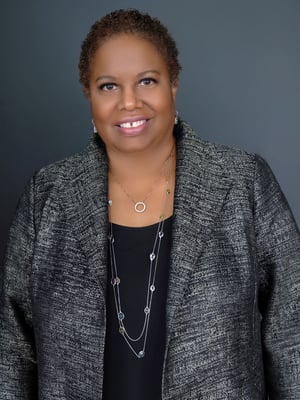We Have to Continue Learning: A Conversation with Tracey Jenkins

In honor of Black History Month this year, we interviewed Tracey Jenkins, senior vice president of HR for Sodexo Live!. Here’s what she said about the barriers she's faced in her career, what she'd like to ask Reverend Dr. Martin Luther King Jr., and how we can all work to overcome bias.
Interviewer: You've been in HR for over 25 years. How did you get into the field?

Tracey Jenkins: After graduating from the University of Colorado Boulder, I went into sales but continued volunteering for the school to recruit new students. That work led me to switch gears and spend several years in college admissions. When I returned to corporate America, that experience translated well into
talent acquisition and management. Over the years, I had the opportunity to hold several roles across HR
and really see how an organization's people impact its ability to fulfill its mission.
Interviewer: As a Black woman, what barriers have you faced in your career?
Tracey Jenkins: In my very first job out of college, there had not been a person of color on the team until I joined. And here I was, an eager and ambitious Black woman. I remember asking my dad why everyone seemed so surprised by the level of competitiveness I brought to the team. To me, it was just who I was.
I've had those situations throughout my career, where I've had to prove that certain perceptions about what
I could accomplish were wrong. But I've always felt like I was just going to bust through. I know I'm here because I belong and can add value.
Interviewer: What career advice do you have for people of color?
Tracey Jenkins: Work to make sure you have the same access as everyone else. Develop relationships with people more senior than you who will see your good work. When they're sitting around the table having conversations about talent, they're going to remember you. Work hard, and people will notice. I firmly believe that because that's how my career developed.
Be open to feedback. Particularly for women, sometimes there's this perception that we're delicate and can't take it. We can take it. Be willing to listen and think about any changes you need to make to continue growing.
I'm proud that we have someone focused on talent management within Sodexo Live!. I always ask him, "Where are the people we don't know about?" There's a list of people who get talked about, and they're going to advance. But who are the people who should be on the list but aren't? That's why I like traveling and getting out to our venues. It's fun to meet the people that we don't know about.
Interviewer: What historical figures do you think you could learn from?
Tracey Jenkins: Martin Luther King. How did he do it? How did he stay a peaceful leader when there was so much hate and vitriol? I would love to have a conversation with him today to ask, "Has your dream been fulfilled?” It would be a very interesting conversation.
I almost feel like history repeats itself sometimes.
It's the same with Jackie Robinson and breaking the color barrier in sports. How did he do it? My son plays lacrosse, and we’ve had some negative experiences along the way. We had to teach him that you can't react. You've got to stay focused. You do your fighting on the field with how you play the game.
Ruth Bader Ginsburg is another person I think the world of. At a time when women weren't even supposed to go to law school, she stayed focused, worked hard, and took her place on the Supreme Court. I'm in awe of that and how she balanced being a successful lawyer, wife, and a mother.
Interviewer: How do you think people can work to overcome their biases?
Tracey Jenkins: Ask yourself why you feel that way. It is likely because of your life experiences. Think about how you counterbalance some of that with education and different life experiences.
If you're facing a difficult conversation, try to stop, listen, and learn. Stop before you react. Let this person say what they need to say, even if it's painful to hear, and then ask questions so you can better understand. Find one thing you can take away from the conversation that you hadn't thought about before. I give myself this advice sometimes too.
I'm sure there are questions people want to ask me as a Black woman that they might be scared to ask, or they're worried about how I will react.
I want to create an environment where we can have those safe conversations and learn from each other.
Interviewer: What does Black History Month mean to you?
Tracey Jenkins: I'm proud we have Black History Month. It's a time to reflect and be thankful for those who came before us and fought hard to try to change this country and history.
But we need to celebrate the hidden figures, the people we don't know about. Every year I learn about someone new. I encourage my colleagues to do the same. Black people in this country have made significant contributions. I'd like to see more education about these hidden figures in our schools but teach yourself. Even as adults, we have to continue learning.